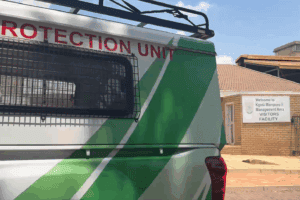President Paul Biya of Cameroon celebrates his 85th birthday on Tuesday after 35 years at the helm of a country that today faces daunting problems, including a separatist revolt.
“The Cameroon of tomorrow, which is developing before our eyes, will have little connection with the Cameroon of yesterday… Let us seize the chance and take up the challenge,” Biya on Saturday said in a speech on the nation’s youth.
Three-quarters of Cameroon’s population, according to the most recent available statistics from 2014, are under 25. They were yet to be born when Biya in November 1982 settled into the presidential residence of Etoudi in the capital Yaounde, also called the Palace of Unity.
Biya urged young Cameroonians to vote in the next general elections due at the end of 2018, including a presidential poll.
But — true to his nickname of “the Sphinx” — he remained silent on whether he plans to run for a seventh term.
Several candidates have already declared their intentions, but the presidential camp has long since learned to keep a close watch over dissenting voices.
– ‘Divide and rule’ –
Biya has locked down all key posts and institutions, up to the creation early in February of a Constitutional Council of 11 members, the majority of whom come from the ruling Cameroon People’s Democratic Movement (RDPC). Their duties will notably include the validation of election results.
A former student in a Roman Catholic seminary and then of political science in Paris, Biya “has put the saying ‘divide and rule’ into practice,” said Stephane Akoa, a researcher at the Paul Ango Ela Foundation.
“This is how he is able to remain at the apex of the system — forces who might have contested his power can’t get organised, let alone form a coalition.”
The most obvious threats to this picture come from separatists in the anglophone west, where two provinces were united with French-speaking Cameroon after independence in 1960. English-speakers comprise a fifth of the population.
Resentment runs high over perceived neglect by the francophone-majority regime. Dozens of people have been killed on both sides since a bloody crackdown on protest by October, sparking an escalation of bloodshed that led to a week-long curfew on Saturday.
Northern Cameroon, meanwhile, is vulnerable to raids against civilians and troops from across the border by Nigeria’s jihadist group Boko Haram. Cameroon is part of a regional military coalition formed to crush the movement.
– Foreign trips –
Biya’s taste for alpaca suits and silk ties and repeated and often lengthy absences, especially to Switzerland, have been a source for criticism in a nation where more than a third of the population still survives on less than two euros ($2.40) a day.
The foreign trips in particular have raised questions about Biya’s health. Rumours that he was sick circulated again at the end of January, but they were confounded by his television appearance on Saturday. His public appearances are so rare that they are closely scrutinised.
Biya offered an upbeat assessment of the state of the nation.
The threat from Boko Haram is “considerably reduced”, the anglophone regions have “calmed down” — though three gendarmes were killed on Sunday — and the national economy has been “embellished”, as he put it.
External commentators, though, say the threat of instability is casting a lengthening shadow.
“With the troubles in anglophone regions and the persistent threat from Boko Haram, the 2018 elections will be a greater challenge than previous votes,” said Hans De Marie Heungoup, a researcher with the International Crisis Group (ICG) thinktank.






